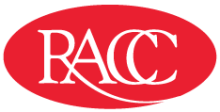Reading Area Community College


Selected Programs at Reading Area Community College
Explore programs at Reading Area Community College. This list is curated by SkillPointe to match skills-based industries and careers that don't require a four-year degree.
Browse Training Programs (22)
Certified Nursing Assistant
Nurse Aide
This program prepares students for employment in a long-term care facility. During this course, the student will be presented with both theory and...
View Program
Dental Assistant
Dental Assisting Program
This part-time program will prepare individuals for employment in a dental of ce. Students will receive theory and practical applications regarding...
View Program
Laboratory Technician
Medical Laboratory Technician, A.A.S.
This program is intended primarily to educate technicians for work in clinical, diagnostic laboratories. Medical Laboratory Technicians perform tests...
View Program
Medical Records and Health Information Technician
Medical Coding and Billing Specialist, A.A.S.
The Medical Coding and Billing Specialist Program is designed to provide students with the competencies necessary to obtain employment as a medical...
View Program
Medical Office/Health Records Specialist Certificate
The Medical Office/Health Records Specialist Certificate program is designed to provide students with the competencies necessary to obtain entry-level...
View Program
Medical Office/Health Records Specialist, A.A.S.
The Medical Office/Health Records Specialist Program is designed to provide students with the competencies necessary to obtain employment in a variety...
View Program
Nurse - LPN / LVN
Practical Nursing Certificate
The Practical Nursing Certificate Program is full-time and 12 months in length. It prepares the student to provide direct client care under the...
View Program
Phlebotomist
Phlebotomy with EKG Training
This program prepares individuals to collect blood from adult patients, donor patients and perform EKGs. The initial component of training will...
View Program
Respiratory Therapist
Respiratory Care, A.A.S.
The Associate Degree program in Respiratory Care prepares the student to assume responsible positions as part of the Health Care team. The graduate...
View Program
Vet Technician
Veterinary Assistant
This program will provide the student with the basic, entry-level knowledge and skills necessary for pursuing a
career in a veterinary hospital as an...
View Program
Data Security Management
Cyber Defense Certificate
The Cyber Defense Certificate is a 37-40-credit certificate that combines both networking and systems administration fundamentals, with a focus on...
View Program
Graphic Designer
Web Site Development Certificate
The Web Site Development concentration is designed to prepare graduates as website developers. Students will gain experience in website design...
View Program
Web Site Development, A.A.S.
The Web Site Development concentration is designed to prepare graduates as website developers. Students will gain experience in website design...
View Program
IT Support Specialist
Computer Technology, A.A.S.
The Computer Technology Program is designed to prepare graduates for employment in information technology support positions. Students will gain...
View Program
Information Technology Certificate
The Information Technology Proficiency Certificate Program is designed to develop the skills necessary to install and maintain Windows-based computer...
View Program
Network Support Specialist Certificate
The Network Support Certificate is designed to develop the skills necessary to support computer networks that utilize Cisco connecting devices, and to...
View Program
Network and Computer Systems Administrator
Cyber Defense Certificate
The Cyber Defense Certificate is a 37-40-credit certificate that combines both networking and systems administration fundamentals, with a focus on...
View Program
Network Support Specialist Certificate
The Network Support Certificate is designed to develop the skills necessary to support computer networks that utilize Cisco connecting devices, and to...
View Program
Software Developer
Web Site Development Certificate
The Web Site Development concentration is designed to prepare graduates as website developers. Students will gain experience in website design...
View Program
Systems Analyst
Web Site Development, A.A.S.
The Web Site Development concentration is designed to prepare graduates as website developers. Students will gain experience in website design...
View Program
Electro-Mechanical Technician
Mechatronics Engineering Technology Certificate
The Mechatronics Engineering Technology Certificate program provides the student with a route to obtain both a college credential and a national...
View Program
Mechatronics Engineering Technology, A.A.S.
The Mechatronics Engineering Technology Program prepares students for careers as engineering technicians in diversified manufacturing. Students gain...
View Program
Industrial Machinery Mechanic
Machine Tool Technology, A.A.S.
The Machine Tool Technology Program is designed to provide the student with the skills and knowledge required of personnel entering industrial...
View Program
Machinist
Machine Tool Technology, A.A.S.
The Machine Tool Technology Program is designed to provide the student with the skills and knowledge required of personnel entering industrial...
View Program
Correctional Officer
Criminal Justice, A.A.S.
This program is designed to prepare students to work in the field of Law Enforcement. Law enforcement practitioners demonstrate an understanding of...
View Program
Criminal Investigator
Criminal Justice, A.A.S.
This program is designed to prepare students to work in the field of Law Enforcement. Law enforcement practitioners demonstrate an understanding of...
View Program
Police Officer
Criminal Justice, A.A.S.
This program is designed to prepare students to work in the field of Law Enforcement. Law enforcement practitioners demonstrate an understanding of...
View Program
Preschool Teacher
Early Childhood Teaching (PreK-Grade 4), A.A.S.
The Early Childhood Teaching (PreK-Grade 4) program is designed to prepare graduates for immediate employment in the ECE field as well as provide the...
View Program
Teacher Assistant
Early Childhood CDA Prep Certificate
The Early Childhood CDA Prep Certificate is designed to provide fundamental course work for entry level employment as an aide in the early care and...
View Program
Early Childhood Teaching (PreK-Grade 4), A.A.S.
The Early Childhood Teaching (PreK-Grade 4) program is designed to prepare graduates for immediate employment in the ECE field as well as provide the...
View Program
Address
10 S Second St
Reading, PA 19602
Reading, PA 19602
Phone number
610-372-4721